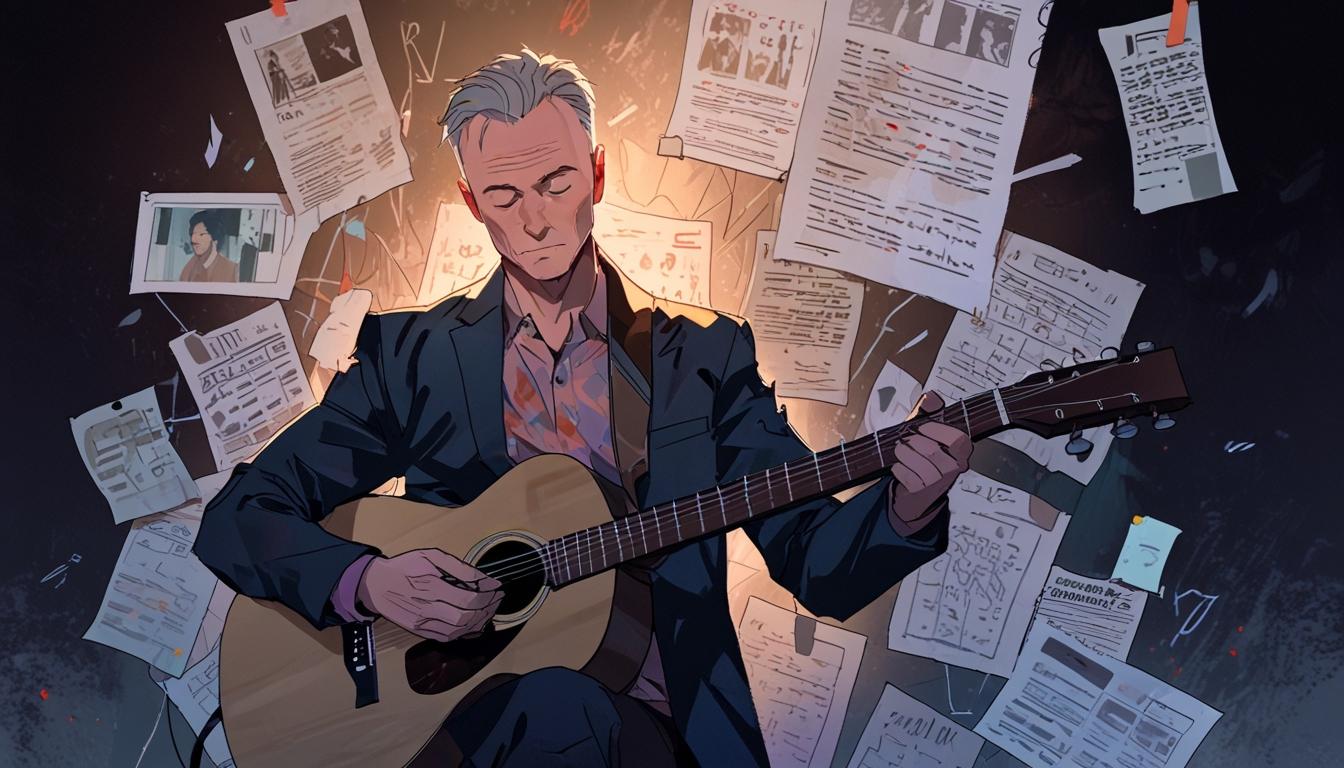Gary Kemp, the renowned guitarist and songwriter from Spandau Ballet, has brought to light the profound financial and emotional challenges currently confronting musicians. In a recent episode of the I Never Thought It Would Happen podcast, hosted by Chris Difford of Squeeze, Kemp elaborates on how the realities of touring in 2025 have prompted significant changes in his approach to music. He candidly shares, “Touring is a big expense—I don’t even know what venues I can afford anymore. It could just end up costing £100,000 for something that gives me pleasure.”
This sentiment echoes the wider struggles faced by many artists in today’s music industry, where the costs of touring have escalated dramatically. Rising expenses related to logistics—such as flights and accommodation—are compounded by the pressures of low ticket sales, a situation highlighted in various reports noting an alarming trend among musicians cancelling tours to prioritise mental health. These financial strains, coupled with the overwhelming nature of incessant touring schedules, have left many feeling compelled to reconsider their careers.
Kemp’s reflections come amidst a backdrop of shifting priorities in music. With the release of his new solo album, The Destination, he indicates a move away from the commercial demands of the charts, saying, “It’ll be around for a long time,” instead emphasising meaningful artistic expression. This shift is particularly pertinent since industry expectations have evolved, placing a significant premium on artists’ presence in the social media arena. As Kemp observes, “Labels rely on your social media. If you’ve ignored it, they don’t know how to sell you.” This reality often forces artists into a cycle of self-promotion that can contribute to mental health challenges, something that has been widely discussed in recent years.
The psychological toll of touring is further exacerbated by social media, with many emerging artists feeling the pressure to maintain an engaging online persona while navigating their personal lives. Kemp poignantly questions, “What people want now is the warts and all. But how far are you willing to go?” This dilemma has prompted a broader conversation about mental health in the industry, with numerous artists sharing their experiences of stress and exhaustion caused by relentless touring demands.
Kemp also opened up about his personal battles with mental health, revealing that he wrote his album while in “the worst mind space,” following the loss of both parents and the aftermath of lockdown. “Writing was the only therapy,” he states, illustrating how creativity can serve as both a refuge and a means of processing grief. This perspective resonates with many musicians who have used their art to navigate difficult emotional landscapes, particularly in the wake of the pandemic.
Additionally, Kemp's passion for theatre, with recent performances in Harold Pinter plays, further enriches his artistic narrative. He perceives a valuable connection between acting and music, particularly regarding their shared demands for discipline and precision.
This ongoing dialogue surrounding the pressures of touring and mental health has gained prominence in recent years, with several artists stepping forward to share their own truths. As highlighted by discussions in various media sources, many musicians are advocating for greater understanding and systemic changes in the industry to foster a healthier environment for artists. There is a growing recognition that while the pressures of performance and promotion can be intense, prioritising mental health and wellbeing is essential for sustainability in the music industry.
In conclusion, Gary Kemp’s insights provide a critical lens into the evolving landscape of the music industry, underscoring a pressing need for compassion and support for artists navigating these turbulent waters.
Reference Map
- Paragraphs 1, 2, 3, 4, 5, 6, 7: Sources 1, 2, 3, 4, 5, 6, 7
Source: Noah Wire Services
